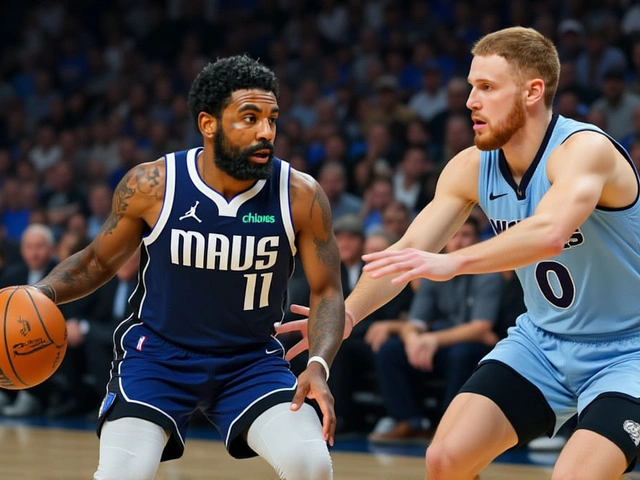When Adam Selipsky, CEO of Amazon Web Services experienced a massive service interruption on October 20, 2025, it set off a chain reaction that crippled Ticketmaster, the ticketing arm of Live Nation Entertainment. The failure hit the platform just hours before Game 7 of the American League Championship SeriesToronto, the decisive showdown between the Toronto Blue Jays and the Seattle Mariners. Fans in Canada and the United States suddenly found themselves staring at error screens, unable to buy tickets for what could have been a record‑breaking night at the Rogers Centre.
What Went Wrong: The AWS outage Explained
The outage began around 02:15 UTC on Monday, October 20, when a cascade of internal hardware failures triggered a shutdown of several key AWS availability zones in the US‑West and US‑East regions. Amazon’s status page listed “network partition” and “storage subsystem degradation” as the root causes. By the time the clock struck 09:00 UTC, the disruption had spilled over to dozens of third‑party services that depend on the cloud, including Ticketmaster’s high‑volume transaction processors.
According to a post‑mortem released by AWS on October 22, the incident lasted roughly 18 hours, with full restoration only declared at 20:45 UTC on Tuesday, October 21. During the window, API calls from Ticketmaster to AWS DynamoDB and Lambda functions timed out, effectively freezing the purchase flow.
- Start of outage: 02:15 UTC, Oct 20
- Full service restored: 20:45 UTC, Oct 21
- Primary affected services: DynamoDB, Lambda, CloudFront
- Geographic impact: Global, with acute effect on North‑American ticketing sites
How Ticketmaster’s Cloud Dependence Backfired
John Stanton, Chairman and CEO of the Mariners’ ownership group was quick to point out that Ticketmaster’s architecture leans heavily on AWS for both front‑end scaling and back‑end data integrity. In a brief statement posted on the Mariners’ official Twitter account, Stanton said, “Our fans deserve uninterrupted access. We’re working with Ticketmaster and AWS to prevent this from happening again.”
The reliance on a single cloud provider is not unique to Ticketmaster; it mirrors a broader industry trend where speed of deployment often trumps redundancy. The GeekWire piece that broke the story highlighted that Ticketmaster processes an average of 2 million transactions per day during peak events, with the ALCS expected to push that number well above 3 million in a single 24‑hour window.
Because the ticket‑selling platform couldn’t fall back to an on‑premise data center, the outage translated directly into a “ticket management issue” alert that the Blue Jays pushed out at 11:40 UTC on Tuesday, October 21.
Reactions from the Blue Jays, Mariners, and Fans
The Toronto franchise, owned by Rogers Communications Inc., issued an official notice on its website: “Due to an unexpected technical incident affecting our ticketing partner, some fans may experience delays or errors when attempting to purchase tickets for Game 7. Please refrain from repeatedly refreshing pages as this can exacerbate the issue.” The tone was apologetic but measured, emphasizing safety and fan experience.
Fans took to social media en masse. A trending hashtag #TicketTrouble trended locally on X (formerly Twitter), with posts ranging from frustration (“I’ve been trying to buy seats for two hours and it just keeps looping”) to humor (“Guess I’ll have to bring a sign to the game”).
Meanwhile, Major League Baseball remained silent on postponement possibilities, stating only that “the schedule will be adhered to unless circumstances necessitate a change.” No official statement on revenue impact was released.

Financial and Operational Fallout
While exact figures are still murky, analysts at Citi Research estimate that a typical ALCS Game 7 generates roughly $5 million in ticket revenue for the host team, based on average ticket price of $112 and a sell‑out crowd of 45,000. Even a 10 % dip in sales would shave off $500,000—significant for any organization, especially when the margin for error is razor‑thin during playoff season.
Beyond the direct loss, there’s the intangible cost of fan goodwill. The “first‑come, first‑served” model that Ticketmaster touts is a cornerstone of its brand, and any breach can erode trust. In a recent survey by Nielsen Sports, 68 % of respondents said they would consider alternative ticket platforms if they experienced a similar outage.
Looking Ahead: Redundancy and Risk Management in Sports Ticketing
Industry experts say the incident will likely accelerate discussions around multi‑cloud strategies. Dr. Maya Patel, a cloud‑infrastructure analyst at Forrester Research, noted, “When a single point of failure can jeopardize a $5‑million revenue stream, the business case for diversified cloud providers becomes compelling.”
Ticketmaster has reportedly begun a “post‑mortem review” with AWS, exploring options such as active‑active deployments across both AWS and Microsoft Azure. The move would mirror what Netflix did after a 2020 AWS glitch, where the streaming giant added a secondary region to mitigate future disruptions.
For the Blue Jays and Mariners, the immediate focus remains on ensuring that fans who ultimately get tickets can enjoy the game safely. Both clubs have pledged to honor any purchases made once the system is fully operational, and they are offering a “priority queue” for affected fans on the day of the game.
Frequently Asked Questions
Why couldn't fans buy tickets for Game 7?
The outage at Amazon Web Services disabled the backend databases Ticketmaster relies on, causing the purchase flow to freeze. With no fallback system in place, the platform could not process new orders.
Did the outage affect the game schedule?
Major League Baseball has not announced any postponement. The game is still slated for the evening of October 21, with the ticketing issue being the primary concern.
How many tickets were expected to be sold?
Analysts projected roughly 45,000 seats, translating to about $5 million in revenue based on an average ticket price of $112 for a Game 7.
What is Ticketmaster doing to fix the problem?
Ticketmaster is working with AWS to restore services, conducting a post‑mortem, and evaluating multi‑cloud options to prevent a repeat. A priority queue for affected fans will be activated once systems are back online.
Will fans be compensated for missed purchases?
Both the Toronto Blue Jays and Seattle Mariners have pledged to honor any tickets purchased after service restoration and are offering expedited access to fans who were unable to buy tickets during the outage.





